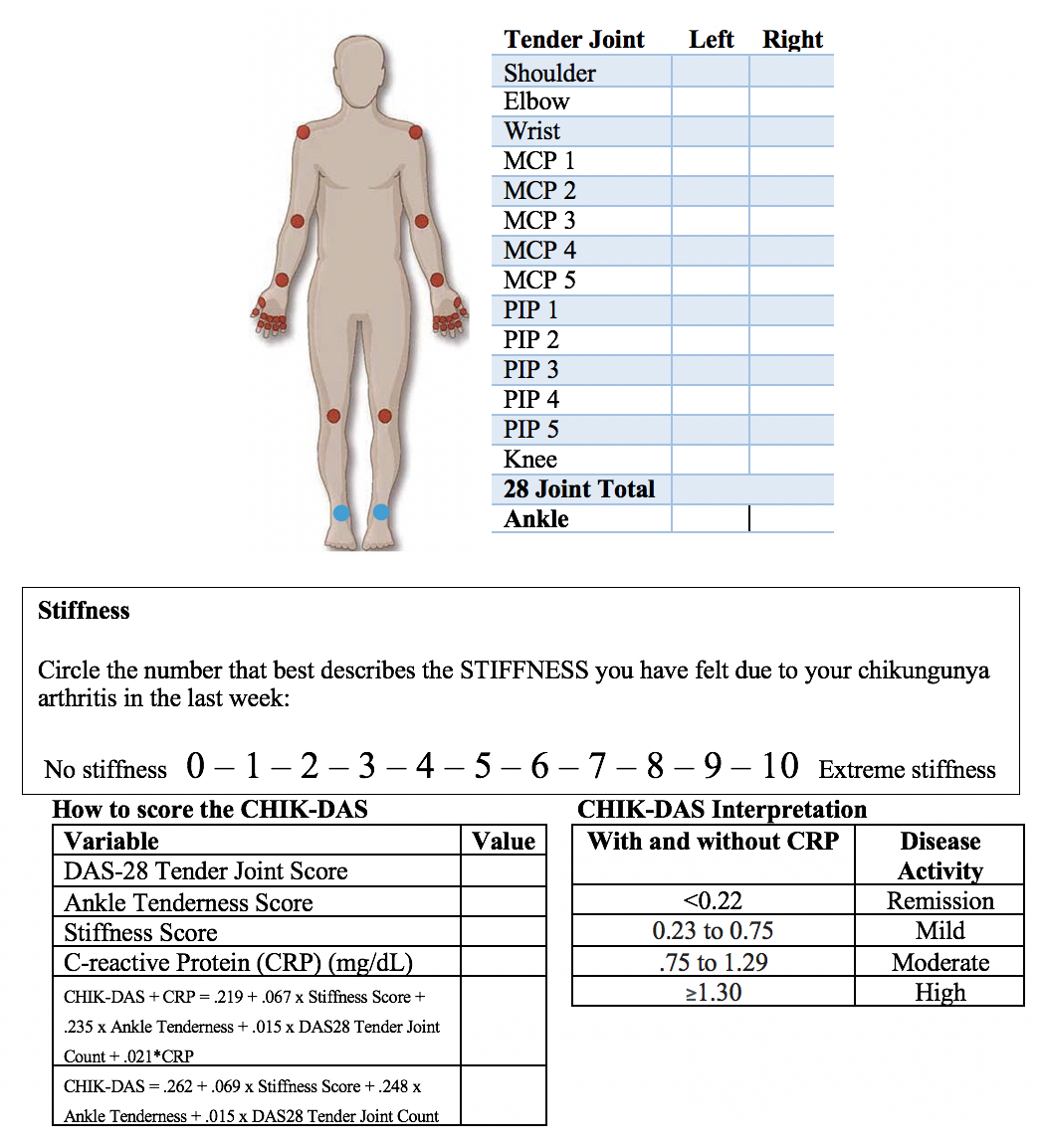Session Information
Session Type: Poster Session A
Session Time: 9:00AM-11:00AM
Background/Purpose: Chikungunya virus is an alphavirus spread by mosquitos that causes a debilitating chronic arthritis that has no standard treatment to date. The objective of this expert group was to develop a measure of chikungunya arthritis that would be useful for clinical trials and patient care.
Methods: A group of chikungunya experts, rheumatologists and biostatisticians identified component measures for evaluation for inclusion in a chikungunya arthritis disease activity score (CHIK-DAS). Utilizing data from a Colombian cohort of chikungunya arthritis patients (N=84), linear regression was used to identify the components that were independently associated with patient reported outcomes assessing disability, pain, physical and mental quality of life and mobility. A preliminary instrument was developed and assessed for internal consistency and test-retest reliability. Cutoffs for grading disease severity were determined.
Results: A CHIK-DAS was developed including a 30 tender joint count and a stiffness item in a form with and without CRP. Disease activity was defined as remission (< 0.22), mild (< 0.75), moderate (0.75-1.29) and severe (≥1.30) disease.
Conclusion: The CHIK-DAS may be used as a specific measure of disease activity in chikungunya arthritis in clinical trials and patient care. This metric should be further validated in additional cohorts.
To cite this abstract in AMA style:
Chang A, Simmens S, Watson H, Amdur R, Siqueira A, Proctor A, Tritsch S, Herrera C, Encinales L, Sucerquia A, Jaller A, Jaller J, Amaral K, Simon G, Moreland L, Cadena A, Firestein G. Development of a Chikungunya Arthritis Disease Activity Score [abstract]. Arthritis Rheumatol. 2023; 75 (suppl 9). https://acrabstracts.org/abstract/development-of-a-chikungunya-arthritis-disease-activity-score/. Accessed .« Back to ACR Convergence 2023
ACR Meeting Abstracts - https://acrabstracts.org/abstract/development-of-a-chikungunya-arthritis-disease-activity-score/

